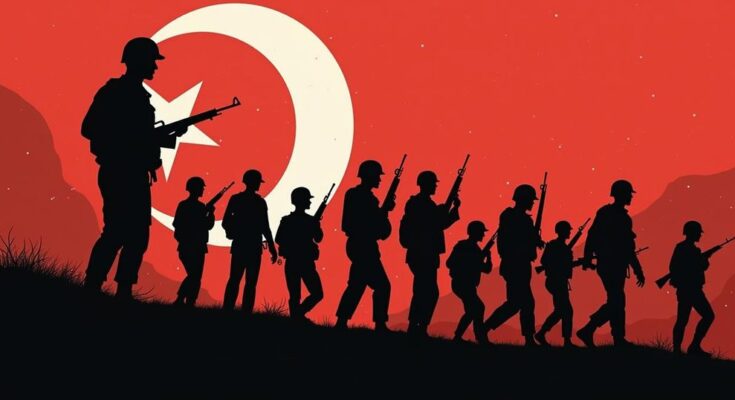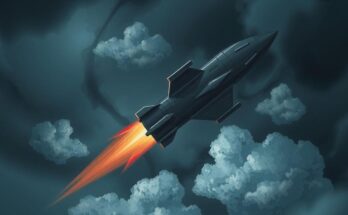The Tunisian army’s political influence has surged under President Kais Saied, sparking concerns ahead of the upcoming presidential election. Historically marginalized, the military gained popularity post-revolution but now faces a challenging role in a climate where democracy appears under threat due to Saied’s authoritarian practices. The army’s dual role as a stabilizer in governance and a democratic protector will be tested as the electoral process unfolds.
The growing influence of the Tunisian army in the political sphere has raised concerns as the country approaches its presidential election. Historically, the military was marginalized during the presidencies of Habib Bourguiba and Zine el-Abidine Ben Ali, gaining a degree of recognition during the 2011 revolution when it was viewed as a protector of democracy. Since President Kais Saied took office in 2019, he has sought to strengthen ties with the military, which played a crucial role in his consolidation of power during his controversial power grab in July 2021. Under President Saied, the army has increasingly permeated political matters, with high-ranking officials being appointed to ministerial posts—a notable development in Tunisia’s political history. By significantly involving the military in governance, observers have expressed alarm, particularly in light of the upcoming presidential election, which is perceived as fundamentally unjust. Unlike other regional armies, the Tunisian military has not historically been a political actor. Both Bourguiba and Ben Ali took measures to restrict military influence in politics, with Bourguiba advocating for the army’s confinement barracks. However, following the revolution, the arm’s role evolved into that of a defender of democracy, with the military seen as a stabilizing force during periods of unrest. Saied’s administration relies heavily on military support, demonstrated by his appointments of military personnel to significant governmental roles. As an ally of the military, Saied has attempted to wield its power to quash dissent, often drawing critics into military courts. However, tensions have begun to surface between Saied and his military appointees, particularly concerning governance and resource management. The army is now at a crossroads, tasked with balancing its role as a protector of democracy while navigating the finer points of Saied’s increasingly authoritarian governance. In summary, the diminishing space for political plurality and the military’s ascendance to roles of influence signifies a troubling trend for Tunisia’s democratic future, particularly as the electoral process unfolds. The military faces a crucial decision in its adherence to republican discipline amid allegations of an impending denial of democracy in the looming elections.
The role of the Tunisian army has shifted dramatically over the decades. Initially restricted by former leaders Habib Bourguiba and Zine el-Abidine Ben Ali, the military found itself elevated in stature during the 2011 revolution. The military’s perceived role as a guardian of the democratic transition further solidified during the early post-revolutionary period through its involvement in elections and public safety operations. However, the political landscape changed significantly with Kais Saied’s presidency, marked by efforts to co-opt military power to stabilize his regime following his controversial power consolidation. These developments have raised alarms regarding democratic integrity and the militarization of governance as Tunisia heads toward another presidential election.
The escalation of military involvement in Tunisian politics under President Saied raises critical concerns about the future of democracy in the nation. Historically relegated to a subordinate role, the army’s newfound authority, especially with military appointments to civilian ministries, poses significant implications for political pluralism. As the country approaches the presidential elections, the imperative arises for the military to uphold its duty as a protector of the republic while navigating Saied’s authoritarian tendencies. The current political climate suggests a precarious balance that could jeopardize Tunisia’s democratic aspirations, particularly in the face of widespread allegations of election fraud and manipulation.
Original Source: www.middleeasteye.net




